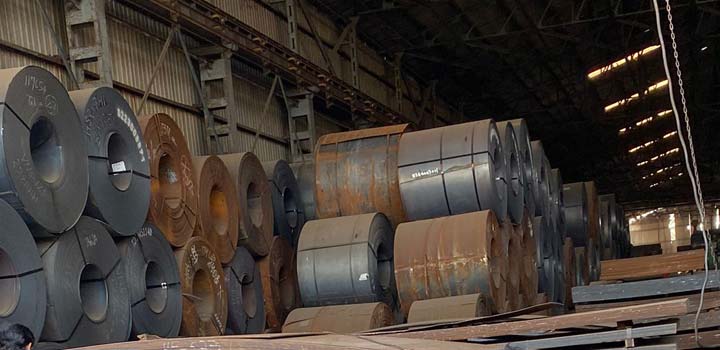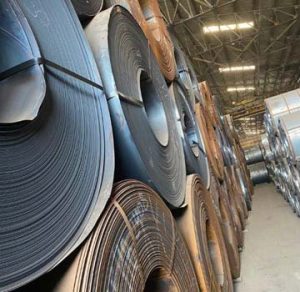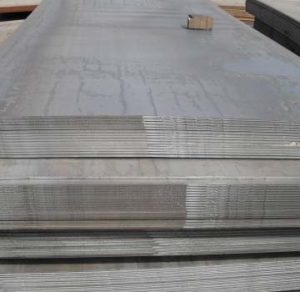The chemical composition of SPFH590 is essential for understanding its performance and suitability in various applications. The percentages of key elements determine the material’s mechanical properties, such as strength, ductility, and hardness. Maintaining strict adherence to standard composition guidelines ensures consistent quality and reliability, making it a preferred choice for critical engineering projects. Table of contents This high-strength steel grade is widely used in automotive manufacturing, particularly for structural components like frames. Its superior mechanical properties allow for lighter designs without compromising strength or safety. This makes it an excellent option for engineers aiming to optimize weight while maintaining durability and load-bearing capacity. Understanding the electrical properties of a material is crucial, especially when it comes to applications involving electrical conductivity. These properties define how well the material can handle electric current and are vital for ensuring both performance and safety in use. The modulus of elasticity measures a material's ability to resist deformation under stress, while specific heat capacity refers to the amount of heat required to raise the temperature of a unit mass by one degree Celsius. Both properties are essential for designing safe and efficient structures. Knowing the density of a material is important for applications that require a balance between strength and weight. It helps in estimating the load-bearing capabilities and aids in cost estimation and material handling during the manufacturing process. Pickling Oiled The following tests are commonly performed to ensure the quality and performance of SPFH590. Each test provides valuable information about the material’s behavior under different conditions: Thermal Paste,Thermal Paste For Cpu Cooler,Thermal Paste For Laptop,White Thermal Paste Guangdong Shengtang New Material & Technology Co.,Ltd. , https://www.shengtang-silicone.com
SPFH590 Chemical Composition
SPFH 590 Mechanical Properties
Yield Strength
Rp0.2 (MPa)Impact
KV/Ku (J)Tensile Strength
Rm (MPa)Brinell hardness (HBW)
Elongation
A (%)
854 (≥)
12
447 (≥)
421
43
JIS G 3134 SPFH590 Plate – Ideal for Automobile Frames
SPFH590 Steel Equivalent
EU
ENFrance
AFNORJapan
JISEngland
BSItaly
UNIUSA
–Inter
ISOGermany
DIN, WNrSweden
SS
S420MC (1.0980)
E420D
SPFH590
HR50F45
Fe420TM
Gr.60
FeE420
QStE420TM
2652
Thermal Properties of S420MC Material
Property
Value
Coefficient of thermal expansion
1.32E-5 – 1.38E-5 1/K
Specific heat capacity
465 J/(kg·K)
Thermal conductivity
25 – 93 W/(m·K)
E420D Grade Offers Excellent Tensile Strength – Explore Electrical Properties of FeE420
Electrical Properties of E420D Grade
Electrical resistivity
1.43E-7 – 1.74E-7 Ω·m
DIN 1.0980 Contains Up to 0.5% Silicon – Explore HR50F45 Physical Properties
JIS G 3134 SPFH590 Physical Properties
Modulus of Elasticity
(GPa)Specific Thermal Capacity
(J/kg·°C)
327
211
JIS G3134 SPFH590 Offers Good Weldability – Check SPFH590 Density
DIN 1.0980 Density
Density
7.8 – 7.9 g/cm³
Material Testing of JIS G3134 Grade SPFH590
HR50F45 Grade Surface Treatment


Check Heat Treatment of SPFH590 JIS G3134 Material
Steel Grade SPFH 590 Heat Treatment
Heat Treatment
1198°C – 1875°C
Max Service Temperature of FeE420 Material
Max Service Temperature
498°C
Melting Point of S420MC Material
Melting Point
1480 – 1526 °C
JIS G 3134 SPFH590 Shear Modulus and Poisson’s Ratio
Shear Modulus
82 GPa
Poisson’s Ratio
0.29
SPFH590 Chemical Composition
Carbon
0.15%
Silicon
0.50%
Manganese
1.80%
Phosphorus
0.025%
Sulfur
0.025%
Iron
96.25%